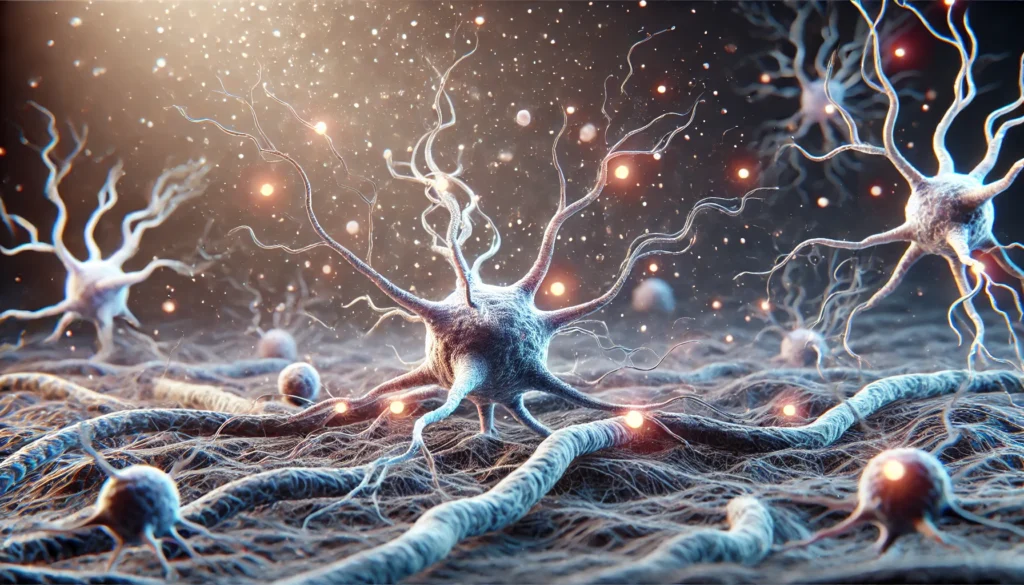Introduction
As the global population ages and rates of cognitive decline and neurodegenerative conditions continue to rise, the search for effective and safe interventions has become more urgent than ever. Among the many natural supplements touted for brain health, ginkgo biloba has remained one of the most widely used and discussed. Known for its potential to enhance memory, support cognitive function, and improve circulation, this ancient botanical extract has drawn attention for its possible role in preventing or delaying the progression of dementia, particularly Alzheimer’s disease. But how solid is the science behind these claims? Can ginkgo biloba help with dementia, or is the evidence more suggestive than conclusive?
You may also like: How to Stop Cognitive Decline: Science-Backed Steps for Prevention and Brain Longevity
Within the scientific community, the debate around the efficacy of ginkgo for Alzheimer’s prevention or treatment is nuanced and complex. Some studies suggest promising outcomes, while others find minimal to no measurable benefit. To help readers and caregivers make sense of the current evidence, this article provides a comprehensive, science-based analysis of how ginkgo biloba dementia research has evolved, the mechanisms proposed to explain its effects, the limitations of existing studies, and the practical considerations for those contemplating its use. We will also explore how ginkgo dementia research intersects with broader developments in brain health, aging, and neuroprotection. Through a deep dive into peer-reviewed literature and expert insights, this article aims to bring clarity to a topic that sits at the intersection of traditional herbal medicine and modern neuroscience.

What Is Ginkgo Biloba and Why Is It Associated with Brain Health?
Ginkgo biloba is one of the oldest living tree species, with fossils dating back over 200 million years. Its leaves contain active compounds such as flavonoids and terpenoids, which are believed to offer antioxidant and anti-inflammatory effects. These phytochemicals have been studied for their ability to enhance blood circulation and protect nerve cells from damage, two factors that are especially relevant in the context of age-related cognitive decline and neurodegenerative diseases like Alzheimer’s.
The widespread use of ginkgo biloba in traditional Chinese medicine has fueled its popularity in the West as a supplement aimed at memory enhancement and mental clarity. Scientific interest in ginkgo increased in the late 20th century as researchers began testing its efficacy in slowing cognitive deterioration. The hope was that the extract could be a low-risk, natural means of supporting cognitive resilience, particularly among older adults at risk for dementia.
This connection between ginkgo biloba and dementia is largely predicated on the theory that improved blood flow to the brain and reduced oxidative stress could help maintain neuronal integrity. Since Alzheimer’s disease is characterized by the accumulation of amyloid plaques, tau tangles, and widespread neuronal damage, the notion that ginkgo might offer neuroprotective benefits is compelling—but also contentious, depending on the quality and consistency of available evidence.

Understanding the Biology of Alzheimer’s and Dementia
To assess the validity of ginkgo alzheimer claims, it’s critical to understand the biological underpinnings of the disease. Alzheimer’s disease is the most common form of dementia, accounting for roughly 60 to 80 percent of cases. It typically involves progressive memory loss, personality changes, language impairment, and disorientation. On a cellular level, Alzheimer’s is associated with the accumulation of amyloid-beta plaques and tau protein tangles that disrupt normal cell signaling and ultimately cause neuronal death.
In addition to these hallmark signs, Alzheimer’s is also accompanied by chronic inflammation, vascular dysfunction, and mitochondrial impairment—all of which contribute to reduced cerebral perfusion and impaired neuroplasticity. Given this complex pathology, many researchers have turned to multi-targeted approaches for treatment and prevention. This is where ginkgo enters the picture. Its broad antioxidant, anti-inflammatory, and vasodilatory properties make it an appealing candidate for supporting various facets of brain health simultaneously.
While no supplement can claim to cure or definitively prevent Alzheimer’s, interventions that reduce risk factors, slow progression, or improve quality of life remain invaluable. Investigating whether ginkgo dementia effects extend beyond placebo and offer measurable protection is both a scientific and clinical priority.
What the Science Says About Ginkgo and Cognitive Decline
Numerous studies have evaluated the potential of ginkgo biloba in preserving memory, slowing cognitive decline, and enhancing mental performance. The results, however, are mixed. A landmark randomized controlled trial called the Ginkgo Evaluation of Memory (GEM) study followed over 3,000 participants aged 75 and older for nearly a decade. The researchers found that ginkgo did not significantly reduce the overall incidence of dementia or Alzheimer’s compared to a placebo. Despite this, some secondary analyses within the study indicated a potential slowing of cognitive decline in certain subgroups, especially those who adhered closely to the supplement regimen or began taking it earlier.
In contrast, several smaller studies and meta-analyses have found more favorable outcomes. A 2015 review published in Psychopharmacology analyzed data from 21 randomized controlled trials and concluded that ginkgo biloba extract, particularly in standardized forms such as EGb 761, was associated with modest improvements in cognition, behavior, and daily functioning in patients with mild to moderate dementia.
The discrepancies in findings may stem from differences in dosage, extract standardization, duration of treatment, and participant characteristics. Moreover, the heterogeneity of dementia itself—ranging from Alzheimer’s to vascular and mixed dementias—makes it difficult to draw universal conclusions. Nonetheless, the consistency of some positive findings has kept ginkgo biloba dementia research in the scientific spotlight.

Mechanisms Behind Ginkgo’s Neuroprotective Potential
Several biological pathways have been proposed to explain the potential therapeutic effects of ginkgo on the brain. The most studied mechanisms include:
Antioxidant activity: Ginkgo is rich in flavonoids and terpenoids that help neutralize free radicals and reduce oxidative stress, which is a key driver of neuronal damage in Alzheimer’s and other forms of dementia.
Improved cerebral blood flow: Ginkgo has vasodilatory properties that may enhance blood circulation, particularly in microvascular regions of the brain. This is especially relevant in vascular dementia, where impaired blood flow leads to cognitive deficits.
Neurotransmitter modulation: Some studies suggest that ginkgo can influence neurotransmitter levels, particularly acetylcholine, which plays a crucial role in memory formation and is notably depleted in Alzheimer’s disease.
Anti-inflammatory effects: Chronic inflammation exacerbates the neurodegenerative process. Ginkgo has been shown to reduce levels of pro-inflammatory cytokines in the brain, potentially slowing disease progression.
Mitochondrial support: Ginkgo’s antioxidant actions may help preserve mitochondrial function, which is essential for maintaining cellular energy production and resilience in neurons.
By targeting multiple aspects of brain health, ginkgo dementia interventions offer a holistic, if not fully conclusive, strategy for mitigating cognitive decline.
Who Might Benefit Most from Ginkgo Supplementation?
Identifying who is most likely to benefit from ginkgo alzheimer prevention strategies remains a challenge. Based on current research, individuals with mild cognitive impairment (MCI)—a transitional stage between normal aging and dementia—may derive the greatest benefit. Some studies suggest that ginkgo may slow the progression from MCI to full-blown dementia, although results are not uniform.
Patients with vascular risk factors such as hypertension, diabetes, or a history of stroke may also benefit due to ginkgo’s potential to enhance cerebral circulation. Likewise, individuals experiencing early memory issues or cognitive fog unrelated to dementia may find some improvement in mental clarity and attention.
However, it’s important to note that ginkgo is not a one-size-fits-all solution. The variability in individual responses highlights the need for personalized approaches and underscores the importance of consulting healthcare providers before beginning any supplement regimen, particularly for older adults on medication.
Ginkgo Safety, Side Effects, and Drug Interactions
Though generally considered safe, ginkgo biloba is not without potential risks. Common side effects include gastrointestinal discomfort, headache, dizziness, and allergic skin reactions. More seriously, ginkgo can increase bleeding risk due to its blood-thinning properties. This is especially concerning for individuals taking anticoagulants such as warfarin or aspirin.
Additionally, ginkgo may interact with other medications, including antidepressants, anti-epileptics, and diabetes drugs. Therefore, anyone considering ginkgo biloba for dementia or general cognitive support should consult with a physician to assess potential contraindications.
Standardization also matters. Many ginkgo products on the market vary in potency and purity. The most studied form, EGb 761, is a standardized extract containing 24% flavone glycosides and 6% terpene lactones. Choosing a reputable brand that uses this formulation can help ensure consistency and efficacy.

Comparing Ginkgo with Other Cognitive Supplements
Ginkgo is not the only natural supplement marketed for brain health. Others include omega-3 fatty acids, curcumin, phosphatidylserine, B vitamins, and adaptogens like ashwagandha. Each has its own proposed mechanisms and varying degrees of evidence. When compared head-to-head, ginkgo holds a unique position due to its long history, favorable safety profile, and multi-targeted mode of action.
However, many clinicians advocate for a synergistic approach that combines several strategies—including diet, exercise, stress management, and sleep optimization—rather than relying solely on supplements. Lifestyle interventions can amplify the potential benefits of ginkgo alzheimer regimens and create a more comprehensive brain-protective framework.
The Future of Ginkgo Research in Dementia Treatment
Research into ginkgo biloba dementia treatments is far from over. New studies are exploring how ginkgo may be used in conjunction with conventional medications, such as cholinesterase inhibitors or NMDA antagonists, to improve outcomes. There’s also growing interest in genetic subtyping and biomarker analysis to determine which patients are most likely to benefit.
Emerging research using neuroimaging techniques like fMRI and PET scans is helping scientists visualize how ginkgo affects brain structure and function in real time. These advances may clarify whether ginkgo offers meaningful protection against neuronal loss or simply masks symptoms temporarily.
Furthermore, studies are being conducted to examine how early-life use of cognitive-enhancing supplements could influence brain aging decades later. This could reshape how we view ginkgo—not just as a treatment for existing decline, but as a potential preventative intervention beginning in midlife.
Frequently Asked Questions
1. What is the recommended dosage of ginkgo biloba for cognitive support?
For cognitive enhancement and dementia-related purposes, most clinical studies have used a standardized extract of ginkgo biloba (EGb 761) at doses of 120 to 240 mg per day, divided into two or three doses. This specific formulation has been the most consistently tested in trials related to memory, attention, and cognitive function. While individual needs may vary, it is essential to choose a product with a proven composition and consult a healthcare provider before starting any supplementation.
2. Is ginkgo biloba approved by the FDA for treating Alzheimer’s disease?
No, ginkgo biloba is not approved by the U.S. Food and Drug Administration (FDA) as a treatment for Alzheimer’s or any other form of dementia. It is sold as a dietary supplement, which means it is regulated differently from prescription medications. Although there is promising research supporting its potential, the evidence is not definitive enough to warrant official approval for medical treatment purposes.
3. Can ginkgo biloba prevent dementia if started early in life?
There is currently no conclusive evidence that ginkgo biloba can prevent dementia when taken in early adulthood or middle age. However, some researchers theorize that long-term use might contribute to better vascular health and reduced oxidative stress, which could indirectly support cognitive longevity. Longitudinal studies are needed to verify these potential preventative effects over decades of use.
4. How does ginkgo compare to prescription drugs for Alzheimer’s?
Prescription medications for Alzheimer’s, such as donepezil or memantine, are designed to target specific neurotransmitter systems and are supported by large-scale clinical trials. Ginkgo biloba operates through broader mechanisms, including antioxidant and anti-inflammatory pathways. While ginkgo may offer mild cognitive benefits, it is not a substitute for these drugs. Some patients, under medical supervision, may use ginkgo alongside traditional medications as part of an integrative care plan.
5. Are there different types of ginkgo biloba supplements?
Yes, not all ginkgo supplements are created equal. The most studied version is EGb 761, a standardized extract with specific concentrations of active compounds. Cheaper or non-standardized versions may vary in effectiveness and safety. It is crucial to choose high-quality, third-party-tested supplements from reputable manufacturers to ensure you are getting a consistent and safe product.
6. Is ginkgo biloba more effective for certain types of dementia?
Some evidence suggests that ginkgo may be particularly helpful for vascular dementia, which results from impaired blood flow to the brain. Because ginkgo enhances circulation and reduces platelet aggregation, it may have more pronounced effects in this subgroup. That said, its impact on Alzheimer’s and mixed dementias remains a subject of ongoing investigation, with some studies noting modest benefits across various dementia types.
7. How long does it take to see results from ginkgo supplementation?
In most clinical studies, improvements in cognitive performance were observed after 12 to 24 weeks of consistent ginkgo biloba use. Individual results may vary based on age, baseline cognitive status, and other health conditions. It’s important to maintain realistic expectations and understand that any cognitive gains are likely to be modest rather than transformative.
8. Does ginkgo biloba affect mood or anxiety in dementia patients?
Some studies have reported that ginkgo may have mild anxiolytic effects and could help reduce agitation or depressive symptoms in dementia patients. This is possibly due to its antioxidant properties and its ability to support neurotransmitter balance. However, these findings are not consistent across all studies, and more targeted research is needed to establish ginkgo’s efficacy in managing behavioral symptoms.
9. Can ginkgo be taken with other supplements for brain health?
Yes, ginkgo biloba is often combined with other cognitive enhancers such as omega-3 fatty acids, phosphatidylserine, or B vitamins. These combinations may offer synergistic benefits, especially when integrated into a broader lifestyle approach that includes exercise, mental stimulation, and a brain-healthy diet. Still, caution is advised to avoid interactions and over-supplementation, particularly in older adults.
10. Should people with Alzheimer’s try ginkgo biloba?
For individuals diagnosed with Alzheimer’s, especially in the early stages, ginkgo biloba may offer some benefit when used as an adjunct to standard therapies. It should never replace prescribed medications but may contribute to cognitive maintenance or quality of life. Always consult a neurologist or geriatric specialist before introducing any new supplement into a dementia treatment plan.

Conclusion
The relationship between ginkgo biloba and dementia is one marked by centuries of traditional use, decades of scientific inquiry, and a current landscape of cautious optimism. While the research on ginkgo alzheimer outcomes remains mixed, the evidence does suggest potential benefits—particularly for early intervention, vascular dementia, and supportive care in mild to moderate cognitive impairment. As the population ages and the burden of neurodegenerative diseases continues to grow, interest in accessible, natural interventions like ginkgo biloba will only intensify.
Ultimately, while ginkgo dementia solutions are not a miracle cure, they may form an important piece of the puzzle in holistic cognitive care. Choosing a high-quality supplement, consulting with healthcare professionals, and combining ginkgo use with lifestyle strategies can maximize its potential benefits. As always, an evidence-informed approach remains the gold standard in both prevention and treatment, offering hope grounded in scientific integrity and compassion.
Was this article helpful? Don’t let it stop with you. Share it right now with someone who needs to see it—whether it’s a friend, a colleague, or your whole network. And if staying ahead on this topic matters to you, subscribe to this publication for the most up-to-date information. You’ll get the latest insights delivered straight to you—no searching, no missing out.
Further Reading:
Understanding Functional Cognitive Disorder: Symptoms, Diagnosis, and How It Differs from Dementia
Early Diagnosis of Dementia and Alzheimer’s: Why Timely Detection Matters for Better Brain Health



